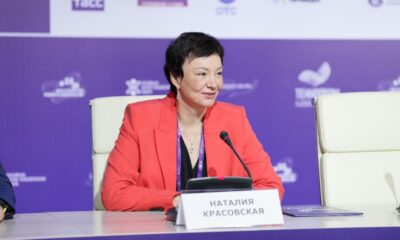Forgotten Dairies
Sustainable Development through Knowledge and Technology Innovation -By Caleb Onah
It will build a system imbued with a culture of cooperation instead of competition, honesty and dedication, patriotism and building a whole human personality who thinks and dreams about his country and its problems. It is different when such a decision is given. Innovation societies will primarily provide information about historical and environmental realities.

The 1970’s and 1980’s were the golden age of knowledge and sustainable development; where higher education institutions are hearts of academic excellence, vanguard of revolution and change. Sadly, today, higher education institutions across the federation are recruited by men and women who happened to be appointed based on faculty; when, in the truest sense of the word, they need to be taught for themselves; because of their moral and intellectual deficiencies.
Olabode Ibironke, Professor at Rutgers University, USA, reinforcing his expert concerns, he noted, “The prevalence of several tropical diseases in Nigeria should have spurred significant national research on these diseases. It is for the benefit of the nation and the human community”. Ibironke also notes: “We must be at the forefront of research, innovation and culture. It happens in the cultural sphere. By no means is Europe and the United States at the forefront of tropical medicine and neglected tropical diseases”.
In developed nations of the world, the capacity to mobilise and use knowledge, science and technology is increasingly recognised as an essential component of strategies to promote national development. These capacity-building efforts over the past quarter-century have ranged from the development of more efficient biomass burners, to the establishment of an international agricultural research system, to the application of science and technology to challenges of stratospheric ozone depletion.
In an increasingly globalised and competitive world, with a huge demand for sustainable solutions, we all have to deal with an extremely complex reality, rapidly evolving technology, and evolving knowledge.
A Thought from Global Nations
Global West and also Organisation for Economic Co-operation and Development (OECD) member states, for instance, France, Finland, United States, and Germany, have been able to advance a convergence aimed at integrating conventional strategies and leveraging ICTs to mass produce and commercialise knowledge, information, innovative products, solutions, and even their cultures for trade to the outside world.
This is in-line with the World Trade Organisation in accelerating the globalisation of knowledge-based industries through the World Trade Organisation Trade-Related Agreement (WTO), especially targeting member countries.
Hence, with the goals of promoting US economic interests and maintaining its technological advantages Nigeria can learn from the United States, committed to driving development of advanced and emerging technologies. The US Bureau of Economic and Business Affairs within this context periodically holds Innovation Roundtables to explore challenges and opportunities in the emerging technology and Information and Communication Technology (ICT) sectors; challenges and possible avenues for growth.
From 2019-2020, the Rwandan government had to set up the Cleaner Production and Climate Innovation Center (CPCIC) as a nexus point for reskilling the country’s workforce and provides training for Rwandans in clean production and climate resilient technologies, in both the public and private sectors.
Further, in the Rwanda Kigali’s case, a Science, Technology, and Innovation Policy Review by the United Nations Conference on Trade and Development (UNCTAD) showed that the country’s focus on ICT has grown the sector over tenfold since 2000, and the Kigali Innovation City is an example of this sectoral development.
Diversifying the Nigerian Economy
While this is self-evident, a knowledge innovation economy is essentially an economy in which knowledge and ideas are key to prosperity and economic growth. Much of today’s international trade and investment as seen in other developed countries is driven by strong human rights protections for intellectual property rights, know-how, knowledge, creativity and innovation. Therefore, as the vulnerabilities are exposed with the price of crude oil plummets repeatedly, the transition from a resource-based economy to a knowledge-based innovative economy is more urgent than ever.
Nigeria can also leverage its status as a geopolitical power in Africa to diversify its local talent pool and make up for lost skills through migration. According to Rosalind Hudnell, Intel’s Director of Global Diversity and Inclusion, “Innovation thrives best in diversity”. Hudnell explains that, “of companies with more than $10 billion in annual reserves, 56% strongly agree that diversity drives innovation”. The impact of diversity on innovation and productivity is undeniable and very important.
Organisational Cooperation and Integration
No more a surprise, most of the knowledge acquired today in various schools in Nigeria, makes us more individualist than cooperative, imitators rather than inventors, arrogant rather than modesty, half smart and nimble, unpatriotic citizens instead of patriots, greedy rather than contemptible, promoting immorality instead of morality, corrupt desires broken and missing “enzyme advocates”. A knowledge-based Nigeria society will weave its cultures and religions into its curriculum, for an effective process for building the engine of national development.
It will build a system imbued with a culture of cooperation instead of competition, honesty and dedication, patriotism and building a whole human personality who thinks and dreams about his country and its problems. It is different when such a decision is given. Innovation societies will primarily provide information about historical and environmental realities.
Conclusively, in today’s technology-driven world, our country’s (Nigeria) global competitiveness depends on her propensity to innovate and create. Open consultations between government and the private sector are the first step towards building a culture of innovation, The Imagine Nigeria report says.
This growing partnership will clarify laws and regulations that can be enacted, changed or repealed to promote economic growth. The Imagine Nigeria report also predicts that the government can act to facilitate the launch of one million startups within a decade, with collaboration across different industries and supported by a $5 billion fund. With case studies from the United States, Korea, China and Rwanda who have demonstrated that there are different models for promoting institutional innovation, in which Nigeria can adopt.
Hence, the people of Nigeria yearn for a new era of technological growth and development and will not stop until this is achieved, have the opportunity to be a part of and participate in a new and positive expression of national identity based on improved knowledge and innovation.
The most important factor is that in every country, the aforementioned strategies have been designed to benefit local contexts and conditions, and planning agencies in Nigeria should keep this in mind. With a young population and abundant natural resources, Nigeria has laid the foundations needed to build an innovative culture. All that remains is a willingness to apply tried, tested, and proven strategies to achieve that goal.










